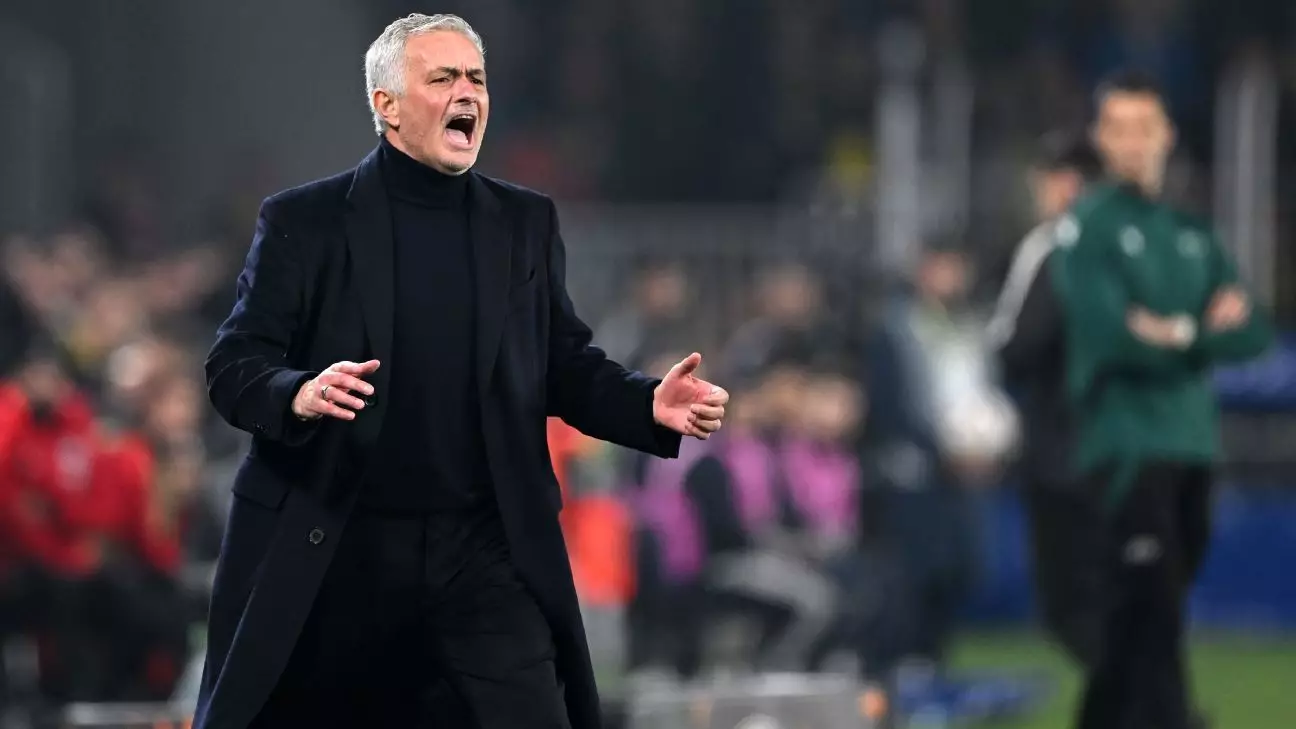The Turkish football scene has recently been shaken by heated allegations and legal disputes surrounding two of its most prominent clubs, Fenerbahce and Galatasaray. The drama unfolded following a fiercely contested derby match, where accusations were exchanged, especially directed towards the famous coach, Jose Mourinho. Allegations of racist remarks made by Mourinho emerged, igniting a firestorm of reactions from both the public and the footballing community.
Galatasaray condemned Mourinho for supposedly referring to their bench by saying they were “jumping around like monkeys,” which they characterized as racist and derogatory. Such statements are heavy charges in any sporting context, and Galatasaray’s leadership expressed their intention to pursue legal avenues concerning what they claim are Mourinho’s “racist statements.” Their official position emphasizes a commitment to uphold dignity within the sport, especially regarding racial sensitivity.
In defense of their coach, Fenerbahce quickly countered these claims, suggesting that the statements attributed to Mourinho were taken out of context. They characterized the accusations as a deliberate distortion intended to undermine Mourinho’s reputation and, by extension, the integrity of Fenerbahce itself. Fenerbahce publicly announced their intention to file a lawsuit against Galatasaray, seeking around $52,000 in damages for what they term an “attack on the personal rights” of their technical director.
The legal action filed by Fenerbahce, which amounts to a symbolic sum of approximately 1.9 million Turkish lira, further illustrates the seriousness with which this matter is being treated. The sum correlates with Fenerbahce’s founding year of 1907, an effort to intertwine the legal fight with club identity and historical pride. This gesture points towards a larger narrative beyond mere legalities; it captures the essence of rivalry between these titan clubs that extends decades back.
Additionally, the Turkish Football Federation compounded the situation by imposing a four-match ban on Mourinho, alongside fines for his critical remarks regarding Turkish referees. This punitive action appears to signal a commitment to maintaining disciplinary standards within Turkish football, regardless of the high-profile status of figures like Mourinho, who is well known for his explosive personality and controversial statements throughout his illustrious career.
This unfolding drama underscores a growing concern within the football community about the intersection of personal conduct and public discourse in sport. Mourinho, having transitioned from several prestigious European clubs to the Turkish top league, has brought a spotlight to the competitive nature of Turkish football. However, with such visibility comes scrutiny, raising questions about the responsibility that high-profile figures must bear when engaged in dialogue about sensitive subjects.
As debates continue and legal proceedings unfold, the future of Mourinho in Turkish football remains uncertain. This incident not only tests the relationships between rival clubs but also reflects broader societal issues regarding race and respect in sports. The stakes are high, and the outcome of this case may set significant precedents regarding the accountability of managers and players alike, highlighting the necessity for sports to foster a culture of mutual respect and dignity both on and off the pitch.

